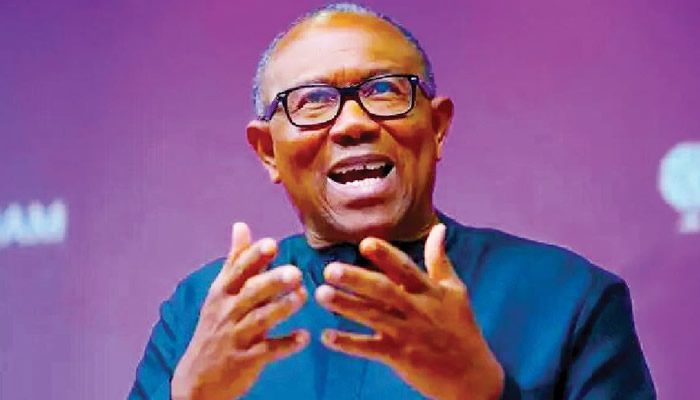In the wake of significant domestic challenges in Nigeria, Peter Obi, the Labour Party’s presidential candidate from the 2023 elections, has expressed concern over the foreign trips undertaken by President Bola Tinubu and Vice President Kashim Shettima. Obi’s criticism is particularly pointed given the current socioeconomic difficulties facing the nation, suggesting that the timing of these trips raises questions about the leadership’s priorities. As reported, Tinubu left Nigeria for the United Kingdom on October 2, 2024, for a working leave, followed by another trip to France for engagements that were deemed “important.” Shettima, meanwhile, traveled to Sweden for bilateral discussions, escalating apprehensions about the implications of the dual absence of the nation’s topLeadership figures.
The presidency defended the scheduled absences, asserting that the absence of both the President and Vice President does not create a leadership vacuum. They maintained that both leaders remain actively engaged in national matters even while abroad. However, Obi contested this perspective. He remarked that while there may not be a vacancy in the official sense, the absence of the President and Vice President at a critical moment is concerning. Referring to the toll that recent government policies have taken on the citizenry, he stressed the urgency of their presence, contending that their physical absence during a period of national strife reveals a disconnect with the very issues plaguing the nation.
Obi pointedly mentioned the inconsistency of Tinubu’s travel decisions by questioning why he could not have included a visit to Sweden within his itinerary after arriving in Paris. He highlighted that the distance between Paris and Stockholm is relatively short, which would have allowed for a more efficient use of time and resources, especially given the critical conditions facing ordinary Nigerians. Instead, the decision to send Shettima on a lengthy journey from Abuja to Stockholm, a trip that is significantly longer than a direct flight from Paris, raised issues of fiscal responsibility and effective governance. Obi scrutinized their leadership style, calling for a recommitment to the welfare of the Nigerian people, emphasizing that such decisions should reflect a prioritization of the nation’s needs.
Obi’s comments underscore a continued concern regarding the leadership dynamics in Nigeria, particularly as it relates to the accountability of public officials. He expressed a belief that true leadership entails being present for the people, especially when they face hardships. The ongoing criticism reflects a sentiment among some Nigerians that the current administration may not be fully attuned to the urgent needs of the populace. Obi argued that in a nation grappling with significant socioeconomic challenges, the leadership must demonstrate a commitment to addressing the hardships faced by citizens through responsible decision-making.
The critique of Tinubu and Shettima’s trips is not isolated, as both leaders have faced scrutiny for prior instances of simultaneous absence from the country. In earlier engagements, specifically from late April to May 2024, both leaders were out of the country, with Tinubu attending a series of international summits while Shettima engaged in discussions in various locations, including the US. This pattern of concurrent international engagements has led to discussions around the implications for governance and the expectations of leaders in times of national distress, raising questions about the frequency and necessity of such retreats from the domestic arena.
As the Nigerian populace continues to grapple with economic turbulence and other pressing issues, the sentiments expressed by Obi reflect broader concerns about government responsiveness and the tangible connection between leadership and the realities faced by citizens. The contrasting views on their trips highlight a division in public perception regarding effective governance and the critical need for leaders to strike a balance between international engagements and addressing the multifaceted challenges at home. Such discussions are likely to persist as the nation navigates through its current difficulties, underscoring the imperative for leadership that prioritizes the interests and welfare of the people above all else.














